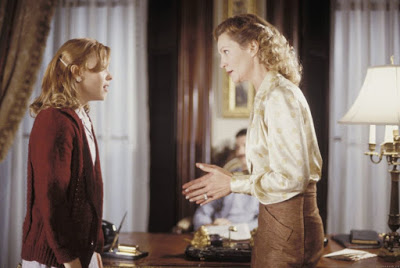This article will explore the evolutionary psychology behind the rare rich woman poor man relationship- a recurring theme in many popular romance novels.
While selecting potential mates, men and women give importance to three main factors- looks, personality, and resources that a potential partner has or is capable of acquiring.
Looks are important because good looks mean that the person is carrying healthy genes and hence the offspring produced are likely to be good looking too.
This provides one with an opportunity to spread his or her genes to the greatest extent possible in the succeeding generations because good looking offspring are more likely to be successful reproductively.
Personality matters because in order to successfully raise kids, one needs to find a partner whose personality is not only good but also compatible with one’s own. This ensures that a strong bond is formed between the couple which facilitates the optimal nurturing and raising of the offspring.
Lastly, resources are critical for ensuring the survival and future reproductive success of the offspring. The chances of survival are directly linked to the resources available.
One important goal that is achieved when a pair-bond is formed between a man and a woman is that each of them is able to contribute their resources to the mutual rearing of offspring.
Men and women weigh these factors differently
Men, in general, give the highest importance to looks, then to personality, and very little, if any, to resources that a woman can provide. Women, in general, give the highest importance to resources, then to personality, and then to good looks. (see what do men find attractive in women and what do women find attractive in men)
So the usual way of things is that men are attracted to beautiful women and women are attracted to men of high socioeconomic status.
But sometimes it so happens that a woman encounters a man who’s a handsome hunk physically, has a great personality but lacks resources.
What does she do in such a situation if she’s evaluating him as a potential partner? Should she choose him or should she go for another man who’s higher up the socioeconomic hierarchy but has ordinary personality and average looks?
This is the classic human female mate choice dilemma that is depicted in many movies (think The Notebook) and novels.
Both the men weigh equally on the woman’s potential partner measuring scale and she’s unable to decide who’s the better choice for her.
Sometimes, the man who lacks resources is so attractive and has such an amazing personality that it surpasses a woman’s important requirement for a resources-providing partner.
In other words, the woman chooses the badly off handsome hunk over the plain, well-to-do guy. She falls in love with the tall, muscular, good-looking man with an awesome personality despite the fact that he lacks resources.

It’s not just about the good genes
Passing on one’s genes to the next generation is not enough. Ensuring that the vehicles that carry those genes (offspring) survive and reproduce is also critical for one’s reproductive success.
As mentioned earlier, the chances of survival and reproduction are directly proportional to the available resources.
Therefore, if the woman does sacrifice the resources criterion and goes for the handsome and charming but badly off guy, resources still need to come from somewhere else. If the woman herself is resourceful, well and good, the problem is more or less solved.
This is why women who fall in love with these types of men tend to be rich (think The Notebook again and Titanic). It solves the lack of resources problem.
A woman who’s herself poor and falls for a poor guy would make for a non-optimal couple (speaking purely in terms of reproductive success) and movies made on such plots would likely be deemed ridiculous, let alone be blockbusters.
But what if the woman isn’t resourceful? Where can the resources then come from?
The next possible source is the woman’s family.
Draining family’s resources
A woman’s family is usually inclined to raise her kids because they know that the kids are the woman’s own. In contrast, the man’s family can’t be 100% sure that the kids belong to the man. Why invest resources and care into offspring that might not carry your shared genes at all?
This is why we generally tend to be closer to relatives on the maternal side of our families. They’re usually the ones who take great care in nurturing and raising us.
The woman who goes for the poor hunk may drain the resources of her family members in order to raise her own offspring.
Of course, her family members would be more than glad to channel their resources into the woman’s offspring (after all, shared genes are benefited) but not if it happens at the cost of their own, individual reproductive success.
Passing on one’s own genes is the first priority. Investing resources in your sibling’s or daughter’s offspring means losing resources that you could have utilized in directly ensuring your own reproductive success.
Hence, the woman’s mother and sister, even though they’d prefer the hunk for themselves too, oppose the woman’s choice and persuade her to wise up and choose the plain, well-to-do guy from the respectable family.
This way their own resources are secured and an even better scenario for them would be the woman helping them raise their kids because she’s now married to a well-off guy who can channel resources into their family.
